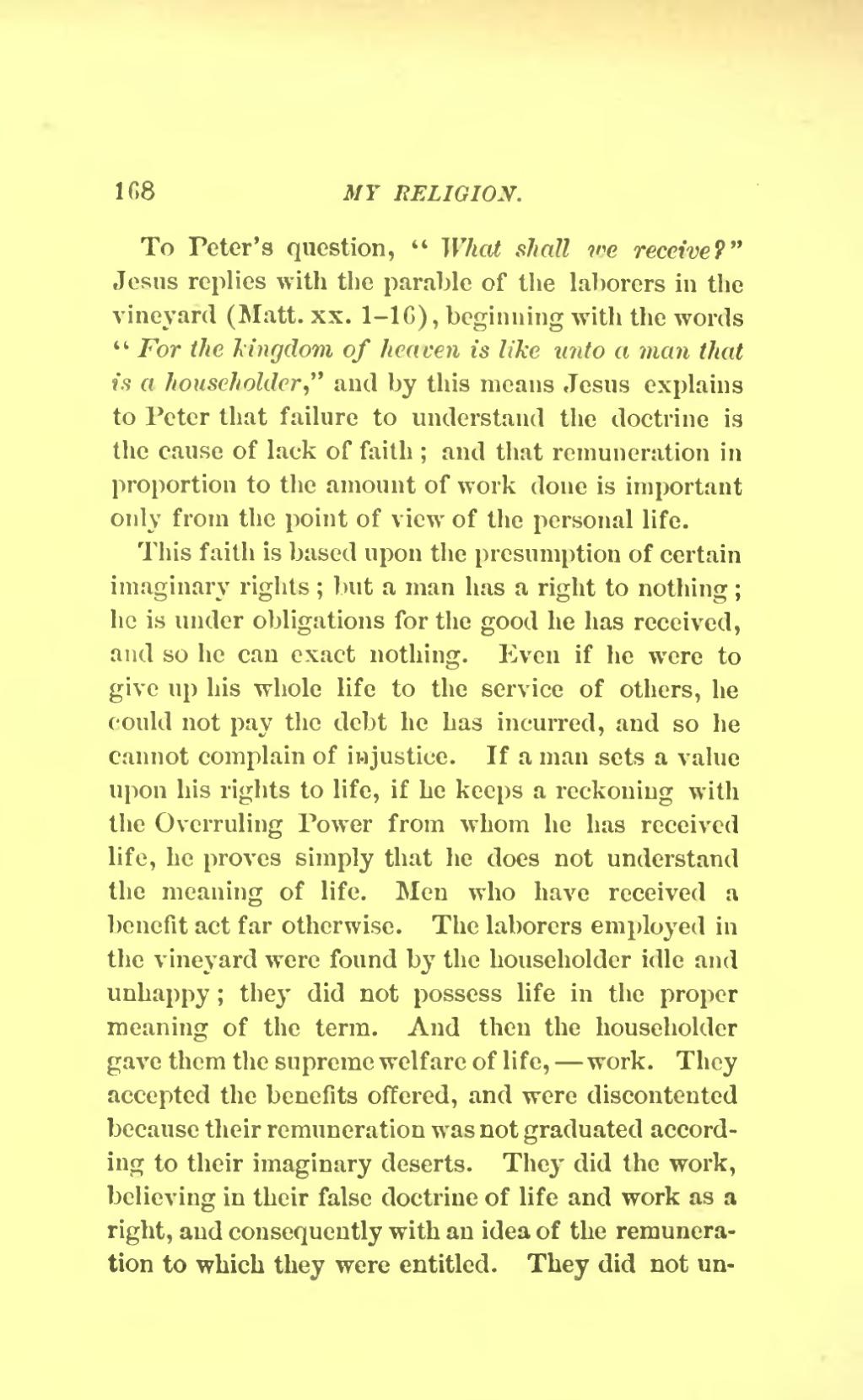To Peter’s question, “What shall we receive?” Jesus replies with the parable of the laborers in the vineyard (Matt. xx. 1–16), beginning with the words “For the Kingdom of heaven is like unto a man that is a householder,” and by this means Jesus explains to Peter that failure to understand the doctrine is the cause of lack of faith; and that remuneration in proportion to the amount of work done is important only from the point of view of the personal life.
This faith is based upon the presumption of certain imaginary rights; but a man has a right to nothing; he is under obligations for the good he has received, and so he can exact nothing. Even if he were to give up his whole life to the service of others, he could not pay the debt he has incurred, and so he cannot complain of injustice. If a man sets a value upon his rights to life, if he keeps a reckoning with the Overruling Power from whom he has received life, he proves simply that he does not understand the meaning of life. Men who have received a benefit act far otherwise. The laborers employed in the vineyard were found by the householder idle and unhappy; they did not possess life in the proper meaning of the term. And then the householder gave them the supreme welfare of life,—work. They accepted the benefits offered, and were discontented because their remuneration was not graduated according to their imaginary deserts. They did the work, believing in their false doctrine of life and work as a right, and consequently with an idea of the remuneration to which they were entitled. They did not un-
